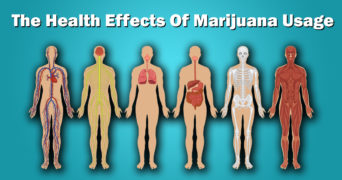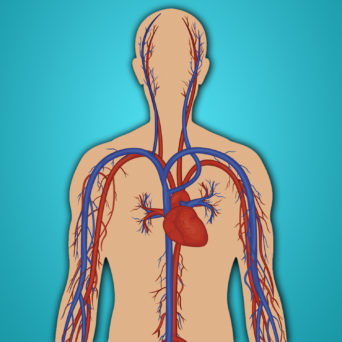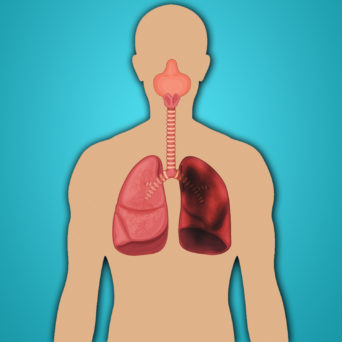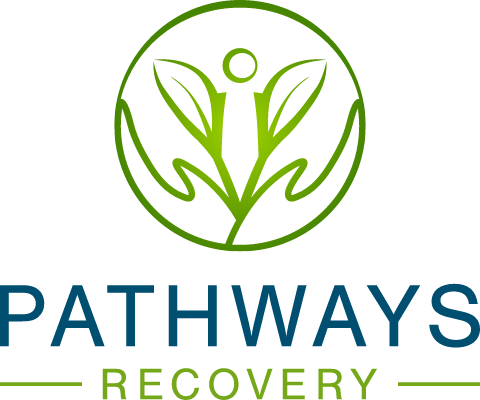Numerous Negative Marijuana Health Effects
Marijuana can be a controversial topic for many people, with a variety of groups arguing for or against the nationwide legalization of the drug for either recreational use or medicinal purposes–or both uses. While some states have now legalized marijuana and a large segment of the population continues to promote the legalization of recreational and medicinal marijuana usage, research 
Because it is the most commonly used illicit drug in the United States, there is a large body of data available to gather information from, and analyze and identify trends in that data. Unlike some other illicit substances, marijuana is much easier to study, especially in populations and areas that have readily embraced the use of the drug.
Smoking Versus Ingestion of Cannabis Into Your System
There are a variety of ways in which one can use marijuana. The manner in which marijuana is used can result in different side effects on the user.
Marijuana is typically smoked in hand-rolled cigarettes, more commonly known as joints, or by using pipes or water pipes, also known as bongs. Among younger demographics, vaping THC (more on this below), the principal ingredient required to induce a high, is also quickly becoming a popular method of smoking marijuana. When marijuana is smoked it affects users almost immediately, and depending on the strength of the marijuana, its effects can last from one to three hours.
When eaten in food the effects take longer to appear, but they can also last longer. Edibles can come in a variety of foods and treats but are perhaps most commonly identified in the form of brownies, cookies, and rice crispy treats with a particular amount of cannabis cooked or baked into the mixture.
The short-term effects of marijuana usage may include:
- Loss of coordination
- Distorted perception (sights, sounds, time, touch)
- Increased heart rate, reduced blood pressure
- Problems with memory and learning
- Trouble with thinking and problem-solving
The long-term effects of marijuana usage may include:
- Impaired brain development (especially amongst teens)
- Thinking
- Memory
- Learning
- Hampering the brain’s ability to connect the above areas
- Difficulties with child development before/after pregnancy
- Mental illness
- Hallucinations, paranoia, disorganized thinking
- Worsening of symptoms in individuals with conditions like schizophrenia
Sometimes, marijuana usage can also produce anxiety, fear, distrust, or panic. The Food and Drug Administration, or the FDA, has also warned about serious respiratory illnesses that have specifically been associated with vaping.
Remember that in using any drug, side effects and consequences of use will not be the same for every individual. Because each individual’s body and systems are unique, side effects and experiences of a drug’s high may be different for everybody.
Active Ingredients in Cannabis and Effects on the Body

Cannabinoid receptors are scattered throughout the body. These receptors are part of a larger bodily system called the endocannabinoid system. The endocannabinoid system is responsible for many bodily processes including the immune system response, cell communication, appetite, and memory, to name a few.
Some areas of the brain have many cannabinoid receptors, but other areas of the brain have few or none at all. Many cannabinoid receptors are found in the parts of the brain that influence pleasure, memory, thought, concentration, sensory and time perception, and coordinated movement.
When marijuana is used, THC will affect these receptors in the brain that can in turn affect an individual’s perception of things. For this reason, individuals who experience a high from marijuana may experience time differently and may have less of an ability to focus or retain normal bodily coordination.
The Impact of Marijuana on Mental and Physical Health
As marijuana becomes increasingly commonplace, it is becoming easier for individuals to access higher doses of the drug.
With an increased strength of doses, higher doses of THC are delivered to the brain and marijuana usage can cause the following symptoms:
- Hallucinations
- Delusions
- Impaired memory
- Disorientation
Not long after smoking marijuana, the heart will begin to beat more rapidly and the blood pressure will drop. Smoking marijuana can cause the heart rate to increase by 20 to 50 beats per minute, and this can increase even more when other substances, such as alcohol, are used simultaneously.
Whether used by itself or in conjunction with other substances, increasing one’s heart rate by too much at once can be dangerous. According to the National Institute on Drug Abuse, there is some limited evidence to suggest that a person’s risk of a heart attack can be up to five times more likely within one hour of smoking marijuana. This may be due to the fact that marijuana can increase a person’s heart rate and blood pressure which can inhibit the blood’s ability to carry oxygen.
Smoking marijuana may also lead to dizziness or light-headedness, which can result in increased falls or fainting.
Marijuana Usage and Respiratory Complications

- Daily cough and phlegm production
- More frequent acute chest illnesses
- Increased risk of lung infections
- Obstructed airways
Most marijuana smokers consume a lot less cannabis than cigarette smokers consume tobacco, however the harmful effects of smoking marijuana should not be ignored. Marijuana contains more carcinogenic hydrocarbons than tobacco smoke and because marijuana smokers typically inhale deeper and hold the smoke in their lungs longer than tobacco smokers, their lungs are exposed to those carcinogenic properties longer, when smoking.
Although one study found that marijuana smokers were three times more likely to develop cancer of the head or neck than non-smokers, that study could not be confirmed by further analysis.
Marijuana Smoke and Cancer Rates

Studies linking marijuana smoking to lung cancer have also been limited by selection bias and small sample size. For example, the participants in those studies may have been too young to have developed lung cancer yet. Even though researchers have yet to “prove” a link between smoking pot and lung cancer, regular smokers may want to consider the risk.
The National Institute on Drug Abuse, however, cites a few studies that indicate “a clear link between marijuana use in adolescence and increased risk for an aggressive form of testicular cancer (nonseminomatous testicular germ cell tumor) that predominantly strikes young adult males.”
Is Weed Addiction Likely?
While originally not thought to be addictive, recent studies have indicated that this is not necessarily the case.
Changes to the plant brought about by intentional breeding by the growers has made the amount of THC in the marijuana currently available much higher than in the past. As a result the euphoric effects of marijuana are much greater today than they were in the past. So, anyone seeking an escape from reality can easily turn to marijuana as their drug of choice, just as much as heroin or other addictive narcotics. The more one turns to a substance, the higher the likelihood is of developing a dependence.
While the jury is still out on the addictive nature of marijuana usage, studies are leaning more and more in the direction of it being addictive rather than just habit forming.
Marijuana use, although increasingly widely used for recreational purposes in today’s world, can still have negative effects on an individual. These effects can be more dangerous when combined with other substances. At Pathways Recovery in Sacramento, CA, we’re here to help you. If you would like assistance with marijuana treatment, or any other substance use, contact us at (916) 735-8377 for more information
Marijuana Health Effects FAQs
Is marijuana legal?
Marijuana is legal in some states and territories in the United States. Legalization may be restricted to only medical use or may extend to recreational use. As the push for legalization continues in many states, it is best to conduct your own search for the most updated information.
How could knowing effects of marijuana help health professionals?
Knowing about the effects of marijuana can help health professionals make the best, most informed decisions for their patients. There are many side effects, benefits, and risks to weigh when a health professional decides on a treatment plan.
It’s important to bring any questions you have about marijuana use or its effects on your health to your doctor. This way, your doctor can take into account multiple factors that may influence your health and develop a plan to help you live a healthy life.
What are marijuana’s effects on other aspects of physical health?
Marijuana can cause respiratory problems, much like smoking can. There is a higher risk of lung infections and those who smoke marijuana often may be subject to a daily cough, increased phlegm production, obstructed airways, and acute chest illnesses.
Some individuals may also experience an increase in heart rate and blood pressure, especially when marijuana is used in combination with other substances. There can be an increased risk for a heart attack after smoking marijuana and a higher potential of experiencing a fall or fainting.


